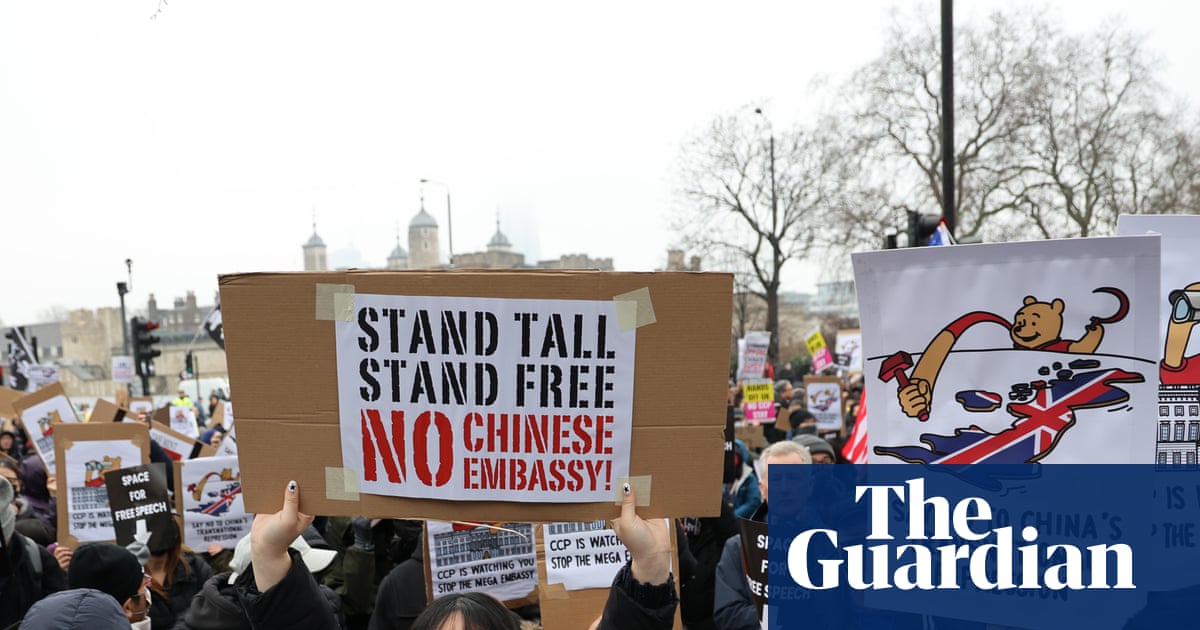Approving a Chinese super-embassy in east London could be unlawful if ministers gave Beijing assurances about the project in advance, one of the UK’s top planning lawyers has concluded.
If Keir Starmer or his team made promises to the Chinese government about the embassy, it could constitute “actual or apparent predetermination” of the planning application, according to the legal opinion by Lord Banner.
The opinion was commissioned by a group of residents opposed to the proposed Chinese embassy near Tower Bridge, which has attracted fierce opposition because of security, human rights and planning concerns.
Ministers are now under pressure to clarify whether they privately assured Chinese officials that they would progress the application after it had stalled under the Conservatives.
China reapplied for planning permission weeks after Labour took power last year, and Xi Jinping raised the matter directly with Starmer in their first call in August 2024.
Starmer then told the Chinese president on the margins of the G20 summit in November 2024: “You raised the Chinese embassy building in London when we spoke on the telephone. We have since taken action by calling in that application.”
Opponents of the proposed complex, which would span across 20,000 sq metres to become the biggest embassy in Europe, are preparing to seek a judicial review of the decision if it is approved. Mark Nygate, the treasurer of the Royal Mint Court Residents Association, said they were raising the funds to challenge it.
The matter is quasi-judicial, meaning the minister responsible for it – currently the housing secretary, Steve Reed – must make his decision objectively under the law and with an open mind.
In his opinion, Banner stressed that “for now there has been no disclosure or formal evidence as to whether any ‘assurances’ have been given” or what the nature of such assurances were.
But he wrote that if the prime minister had made a promise to Beijing, for example, that “would be seen by the fair-minded and informed observer to generate a real possibility or real risk that the secretary of state (at least if he was aware of the promise) had a closed mind on the basis that collective cabinet responsibility required him to uphold the prime minister’s promise”.
He said it was of “critical importance” that any relevant written evidence, including any records indicating that assurances were given, must be preserved by the government, which will be obliged to disclose them if there is a judicial review. Reed’s department was contacted for comment.
Last week China expressed “grave concern and strong dissatisfaction” after ministers delayed their decision over the embassy until 10 December. It said the government had shown “disregard for contractual spirit, acting in bad faith and without integrity”.
Lin Jian, a spokesperson for the Chinese foreign ministry, said China had acted with “the utmost sincerity and patience” over the matter and the UK should “immediately fulfil its obligations and honour its commitments, otherwise the British side shall bear all consequences”.
Downing Street said it did not “recognise any claims of commitments or assurances” over the embassy application on Friday.
Luke de Pulford, executive director of the International-parliamentary Alliance on China (Ipac), said: “Lord Banner has laid down a marker. If the rumours are proven true and unlawful assurances were given to Beijing, the government could face a catastrophic judicial review, where all the details would be laid bare.”
On Sunday the government categorically denied any political interference in the decision to drop charges against two men, including a former parliamentary researcher, accused of spying for China.
A government spokesperson said “there was absolutely no political interference with the evidence provided in this case” and denied reports that Matthew Collins, the official who drafted the evidence, privately acknowledged it was influenced by political considerations. “This is categorically untrue,” they said.
The Sunday Times reported that Christopher Berry, one of the two men who had been charged with espionage, was carrying £4,000 in cash when he was stopped by police under terrorism laws after flying into Heathrow from China in February 2023. Both Berry and his co-accused, Christopher Cash, deny wrongdoing.
A Metropolitan police spokesperson said at the time: “A man in his 30s was subject to a stop at Heathrow airport on 2 February 2023 under Schedule 3 of the Counter Terrorism and Border Security Act 2019. He was not arrested and enquiries continued.”

